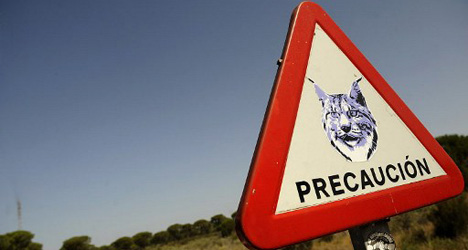A report issued on Monday by Ecologists in Action has warned that Spain's biodiversity is the most fragile in Europe with the greatest number of endangered species, according to press agency EFE.
Basing their conclusions on figures from The International Union for Conservation of Nature (IUCN) and the European Environment Agency (EEA), the ecologists described the situation as 'alarming' and advised that neglectful government policies could make it even worse.
The Mediterranean region has the highest percentage of species at risk of extinction compared with the rest of the continent.
With Portugal and Greece closely trailing Spain in the rankings, there is said to be a "clear link" between the degree of threat and the level of vulnerability.
Ecologists in Action slammed the Spanish Ministry of Agriculture, Food and Environment, saying that it "focuses its efforts on changing environmental regulations, which has serious consequences in terms of loss of protection and deregulation."
Policymakers in Spain's autonomous communities were also criticized, as the organization claimed they "support projects that theoretically promote economic growth but actually have serious environmental and social consequences."
The report noted that these policies have led to the current situation where 25% of the new artificial surfaces in Europe – urban, commercial, industrial and transport areas – have been created in Spain.
Ecologists in Action stated that this has seriously intensified the loss of agricultural land and natural ecosystems.
The conclusions are based on European Red List data from the IUCN, which records the conservation status of animal and plant species, and on EEA data on land use in Europe between 2006 which highlights the "high degree of biodiversity destruction" in Spain.
The United Nations has designated May 22nd as the International Day for Biological Diversity to raise awareness of the issue and draw attention to the Convention on Biological Diversity, a legally-binding treaty signed at the Earth Summit in 1992 and now ratified by all UN member states – including Spain – except the United States, Andorra and South Sudan.



 Please whitelist us to continue reading.
Please whitelist us to continue reading.
Member comments